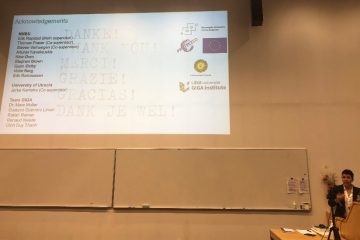Hi everyone!
Last week I had the opportunity to attend a workshop on “Social Media and Blogging for Impact” hosted by the Graduate School at Queens University Belfast. Since I am the ESR in charge of running the social media accounts for PROTECTED, I thought this could be a fun and useful workshop to attend and learn some new tips.

The workshop consisted of various presentations from experts in media communication as well as researchers from the university who have accumulated an impressive social media following. Social media is an invaluable resource for three things that academics value: networking, information, and impact. We got to ask questions about our specific social media goals/obstacles as well as hear some universal tips for using social media to boost impact. Here are some of the main tips that were given:
1. Engagement – Engage with others (i.e. don’t spend all day on your own platform counting likes and followers…) Make sure that you are not just throwing out blogposts and tweets into the social media universe, but that you are engaging with any comments they attract as well as with your followers posts. Social media communication is two sided
2. Join The Conversation…literally. The Conversation UK is an independent source of news and views, sourced from the academic and research community and delivered direct to the public. The Conversation UK allows university and research institute experts to write on a subject on which they have proven expertise. Experts work with their professional team of editors to make sure that the articles are not laden with scientific jargon and that the average person is able to read and understand its contents. Often times you may work with the Conversation so that they publish your article alongside an important paper publication or keynote lecture.
3. Know Your Audience – It is important to be aware of what you are offering by posting and who you are offering it to. If you are aiming to educate the general public about your research on highly technical toxicological practices, you really need to consider your wording every time you are about to post to make sure that it will be understood by your audience. If you only want to network with your peers and share your research, then this would not be much of an issue, because your followers should be familiar with your vocab.
4. Use photos! People are more likely to stop and engage with your posts if there are visuals to look at. With so much information at our fingertips, we consume social media so quickly. Visuals help to attract attention and can make something highly academic appear more digestible to the general public.

Hopefully this was helpful if you are interested in using social media for research in the future!
Until next time,
Melissa



0 Comments